architecture
1/23
There's no tags or description
Looks like no tags are added yet.
Name | Mastery | Learn | Test | Matching | Spaced |
|---|
No study sessions yet.
24 Terms
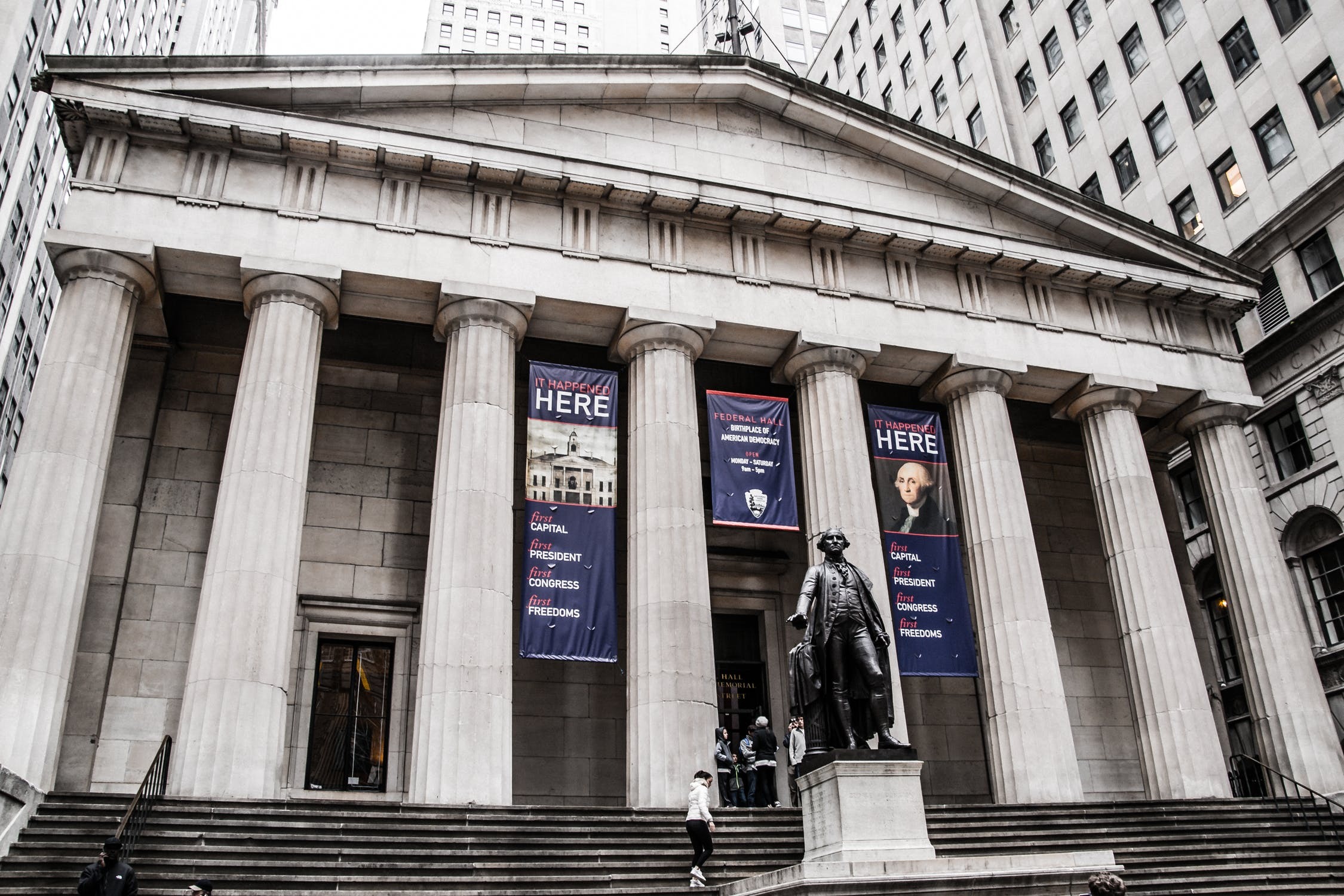
Federal Hall
Architect: Ithiel Town & Alexander Jackson Davis
Architecture style: Greek Revival
Built in: 1833–1842
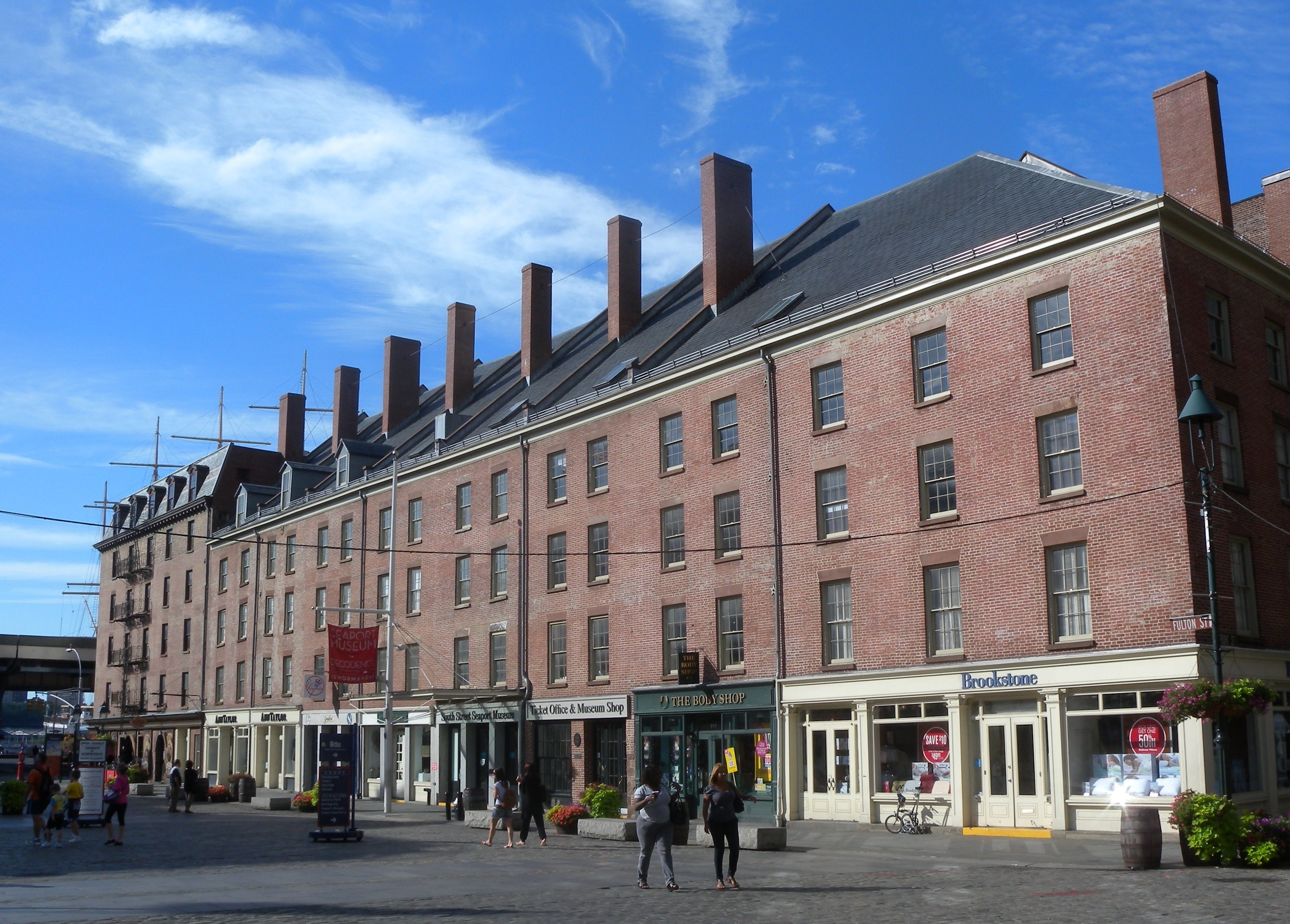
Schermerhorn Row
Architect: N/A (commissioned by Peter Schermerhorn; architect unknown)
Architecture style: Federal / Georgian-Federal style
Built in: 1811-1812
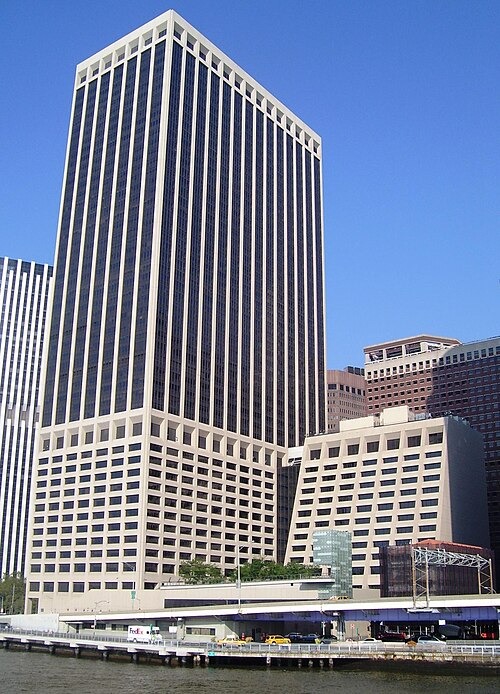
55 Water Street
Architect: Emery Roth & Sons (Lee S. Jablin)
Architecture style: International style
Built in: 1972
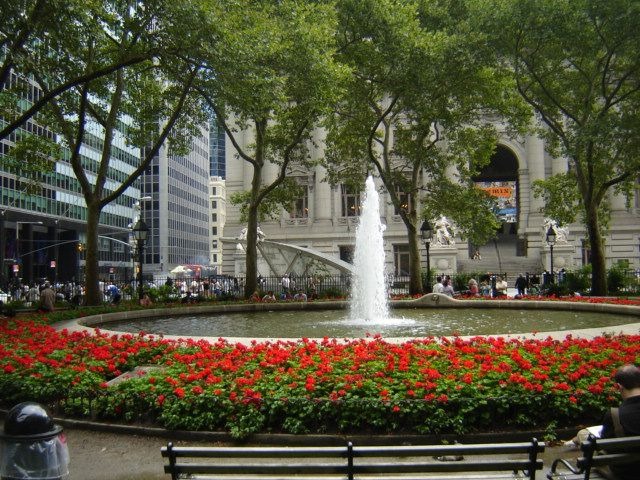
Bowling Green Park
Architect: N/A (it’s a park)
Architecture style: N/A (public park)
Built in: Designated as park in 1733 (though the site was used for other purposes before)
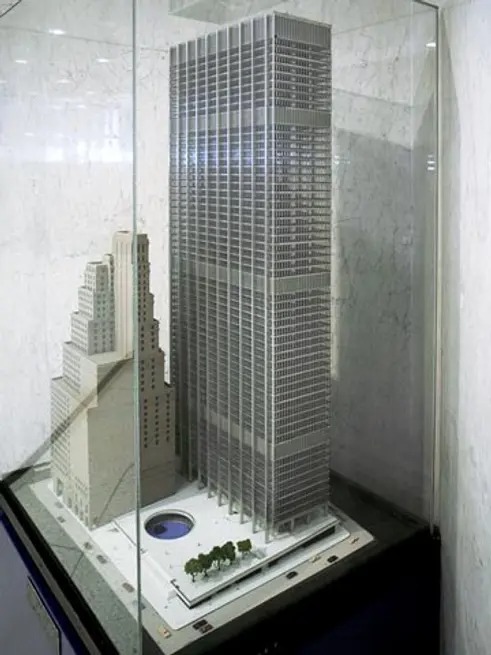
Chase Manhattan Bank Plaza (28 Liberty Street)
Architect: Skidmore, Owings & Merrill (SOM)
Architecture style: International Style
Built in: 1960
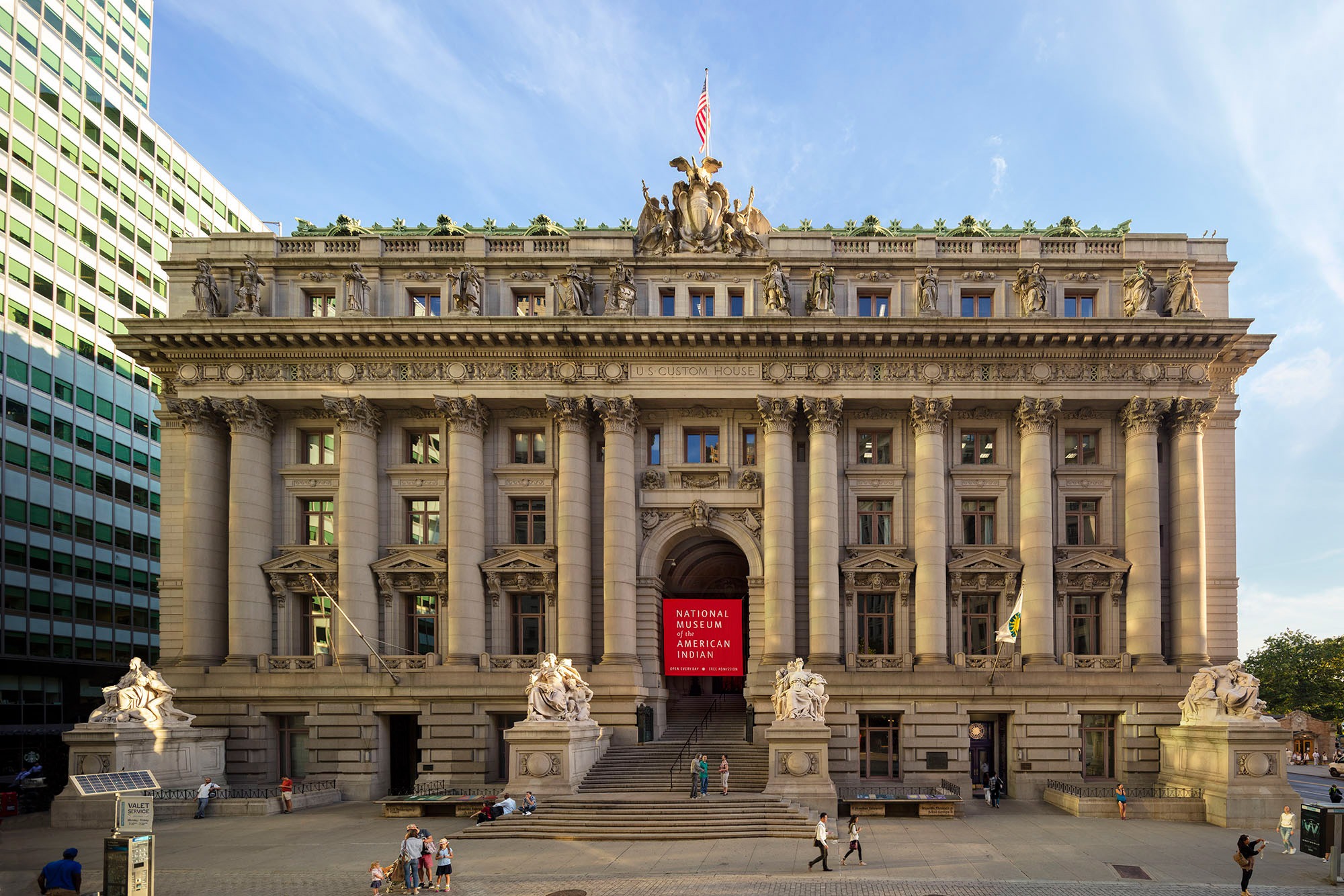
Building: U.S. Custom House (a.k.a. “Alexander Hamilton U.S. Custom House”)
Architect: Cass Gilbert
Architecture style: Beaux-Arts
Built in: 1900-1907
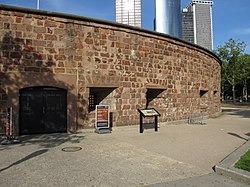
Building: Battery Park (often just “The Battery”)
Architect: N/A (public park developed over many phases)
Architecture style: N/A (public/open-space landscape rather than a building with a defined architectural style)
Built in: 17th century
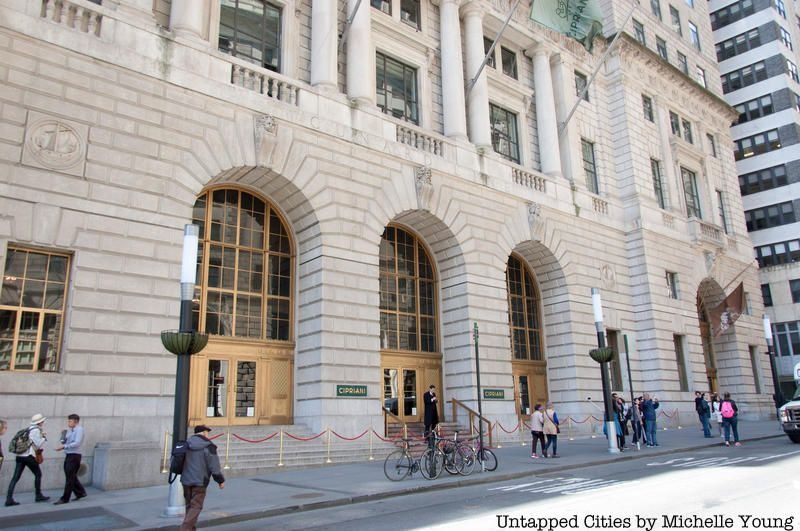
Building: Cunard Building, 25 Broadway
Architect: Benjamin Wistar Morris (with consulting firm Carrère & Hastings)
Architecture style: Neo-Renaissance (Italian Renaissance revival)
Built in: 1920-1921 (construction)
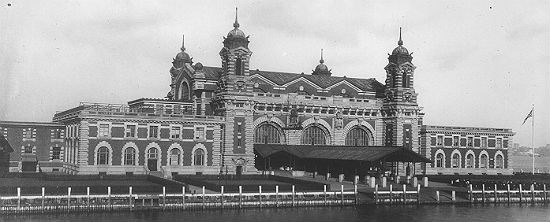
Building: Ellis Island
Architect: N/A (various architects; main immigration station designed by Edward Lippincott Tilton)
Architecture style: Beaux-Arts / French Renaissance Revival influences
Built in: The main station opened in 1900 following initial operations from 1892; earlier structures existed before a fire in 1897.
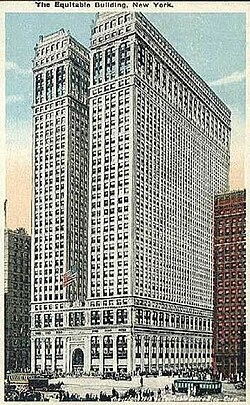
Building: Equitable Building (120 Broadway)
Architect: Ernest R. Graham (of Graham, Anderson, Probst & White)
Architecture style: Neo-Classical / early skyscraper commercial style
Built in: 1913–1915
One fun fact: Its massive, boxy design cast so much shadow that it directly inspired New York’s 1916 Zoning Resolution — the first zoning law in the U.S.
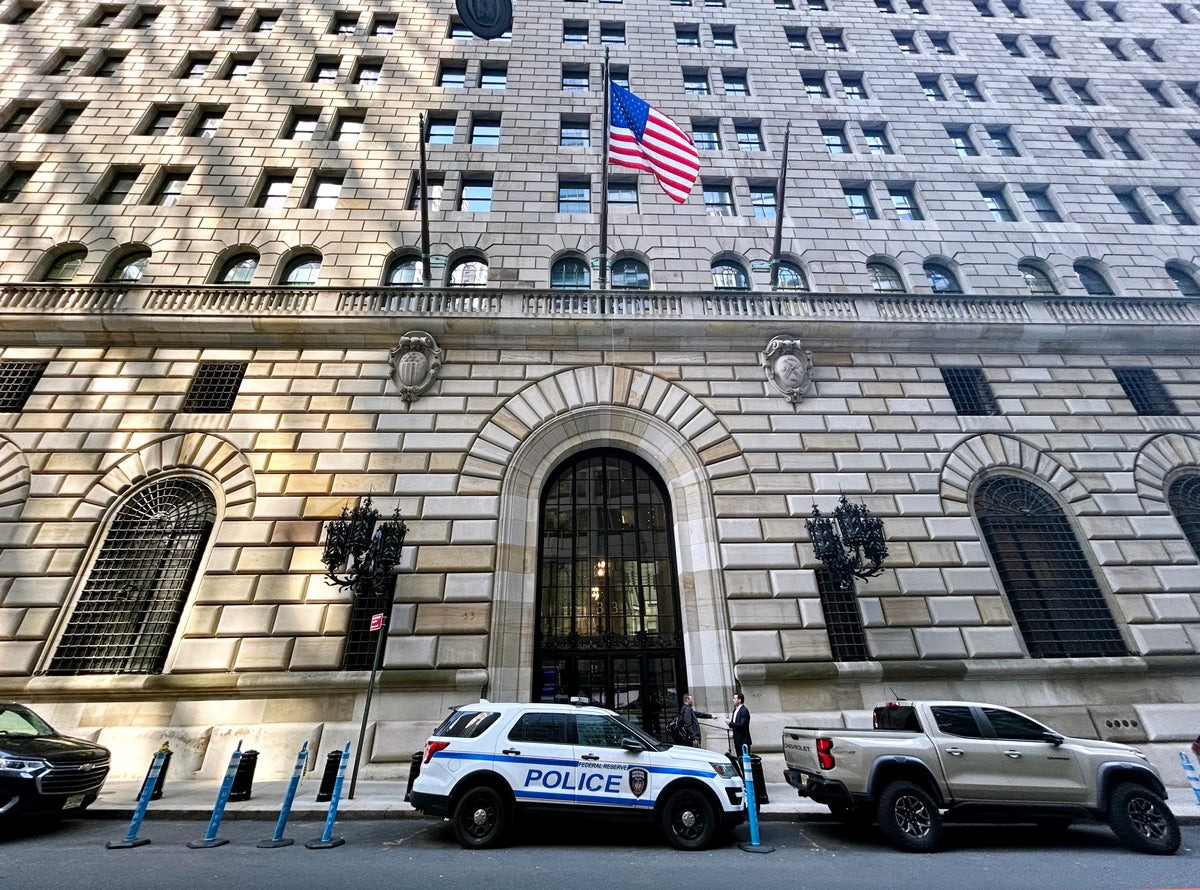
Building: Federal Reserve Bank of New York (33 Liberty Street)
Architect: York & Sawyer (Ironwork by Samuel Yellin)
Architecture style: Italian Renaissance Revival (inspired by Florentine palaces)
Built in: 1935
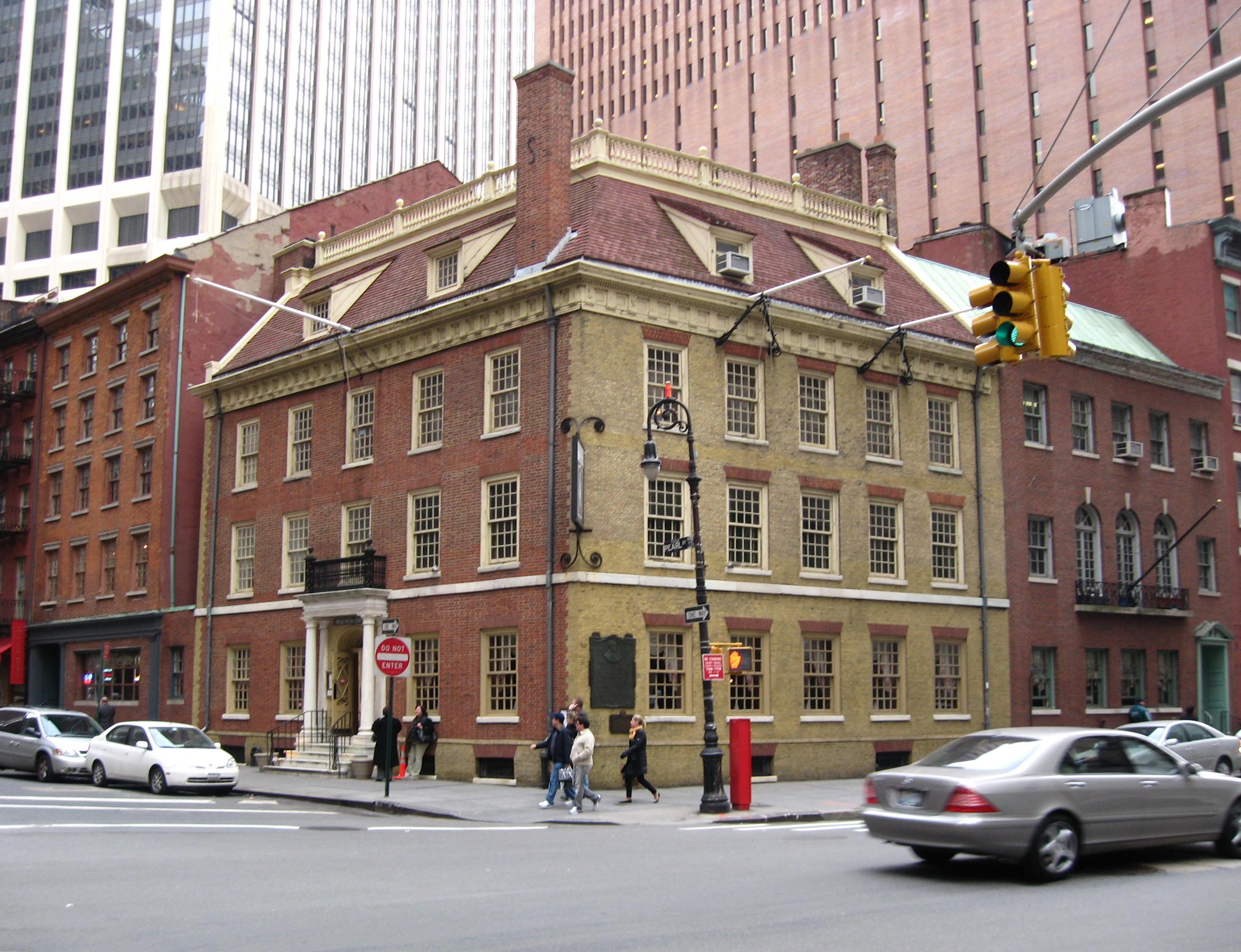
Building: Fraunces Tavern (54 Pearl Street)
Architect: William Mersereau (restoration architect, 1907)
Architecture style: Georgian
Built in: 1719 (original)
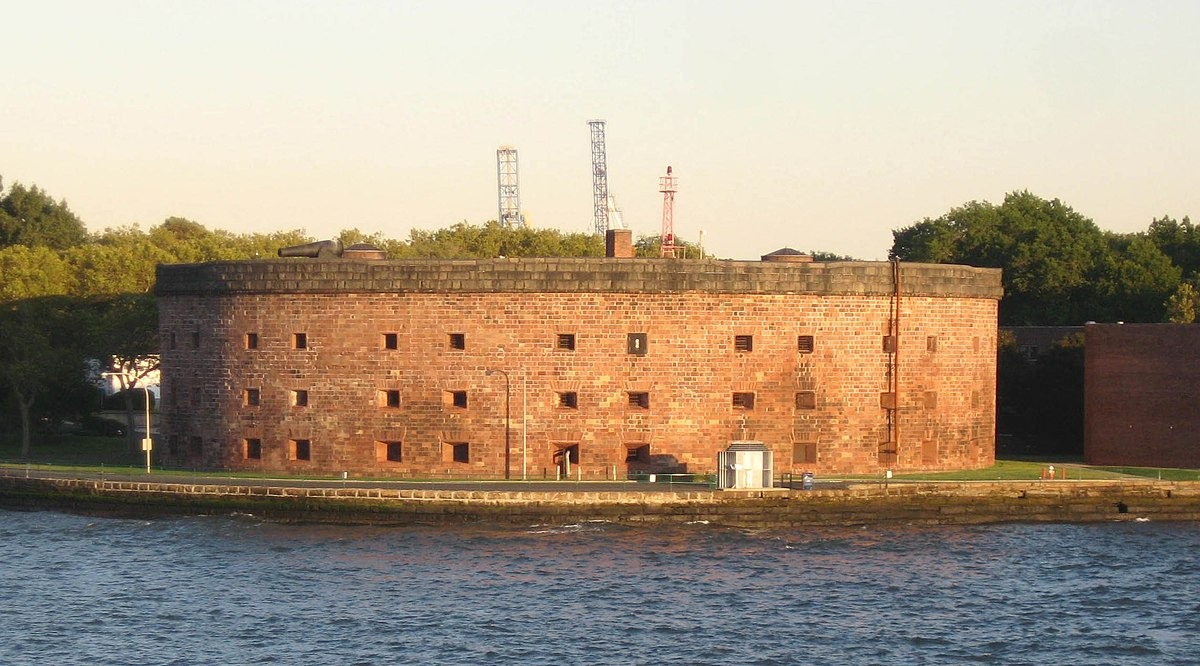
Building: Governors Island
Architect: N/A (various military engineers over time)
Architecture style: Mixed — major military fortifications (e.g., forts) rather than a single unified style
Built in: The island’s military use dates back to late 18th / early 19th centuries (e.g., Fort Jay built 1794/1806)
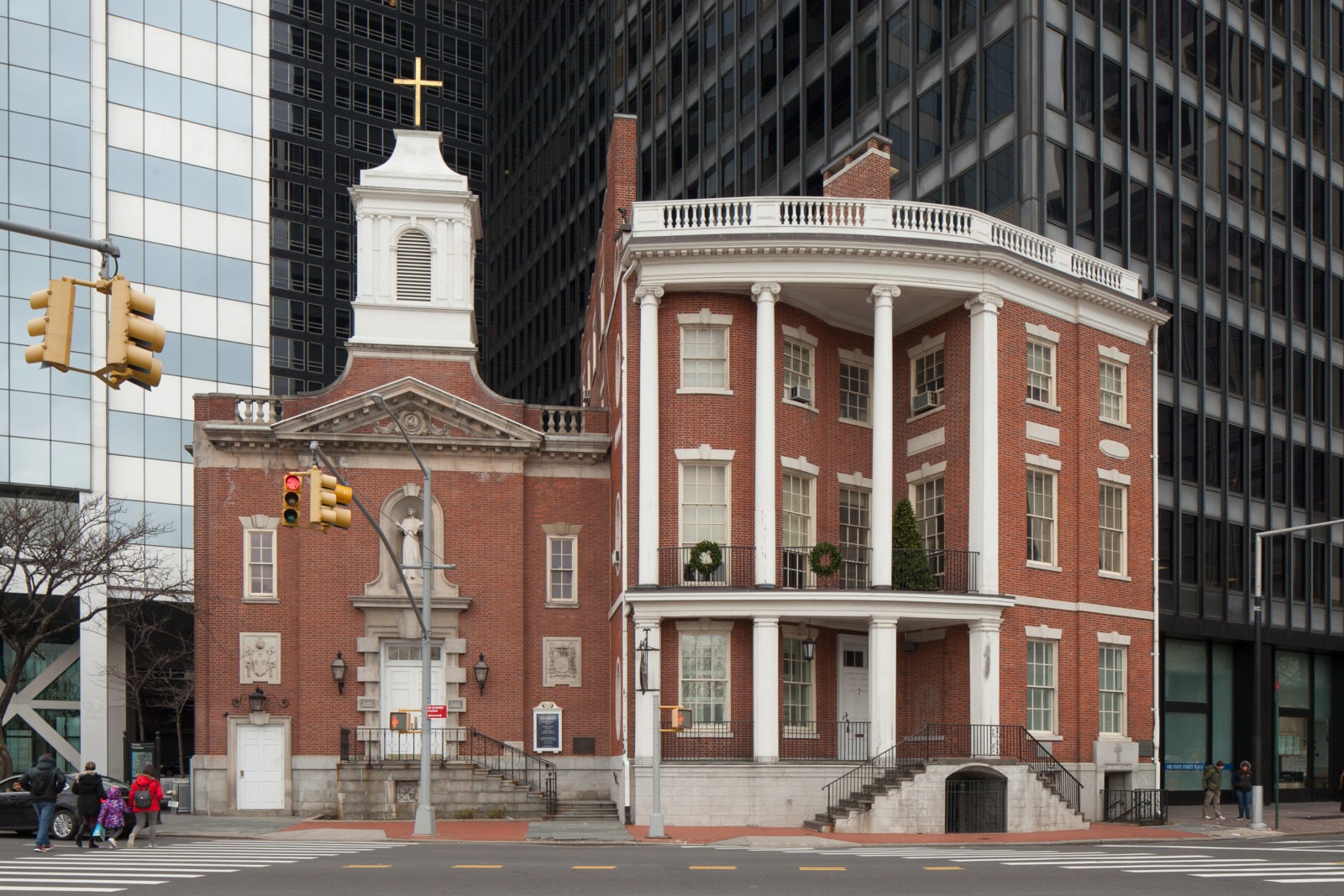
Building: James Watson House (7 State Street) (right)
Architect: Attributed to John McComb Jr. (west extension, 1806)
Architecture style: Federal / Georgian
Built in: 1806
AND
Building: Shrine of Mother Seton (8 State Street / adjacent to Watson House) (left)
Architect: Stanley & Sturges (1964-65)
Architecture style: Georgian Revival / Colonial Revival
Built in: 1964-65
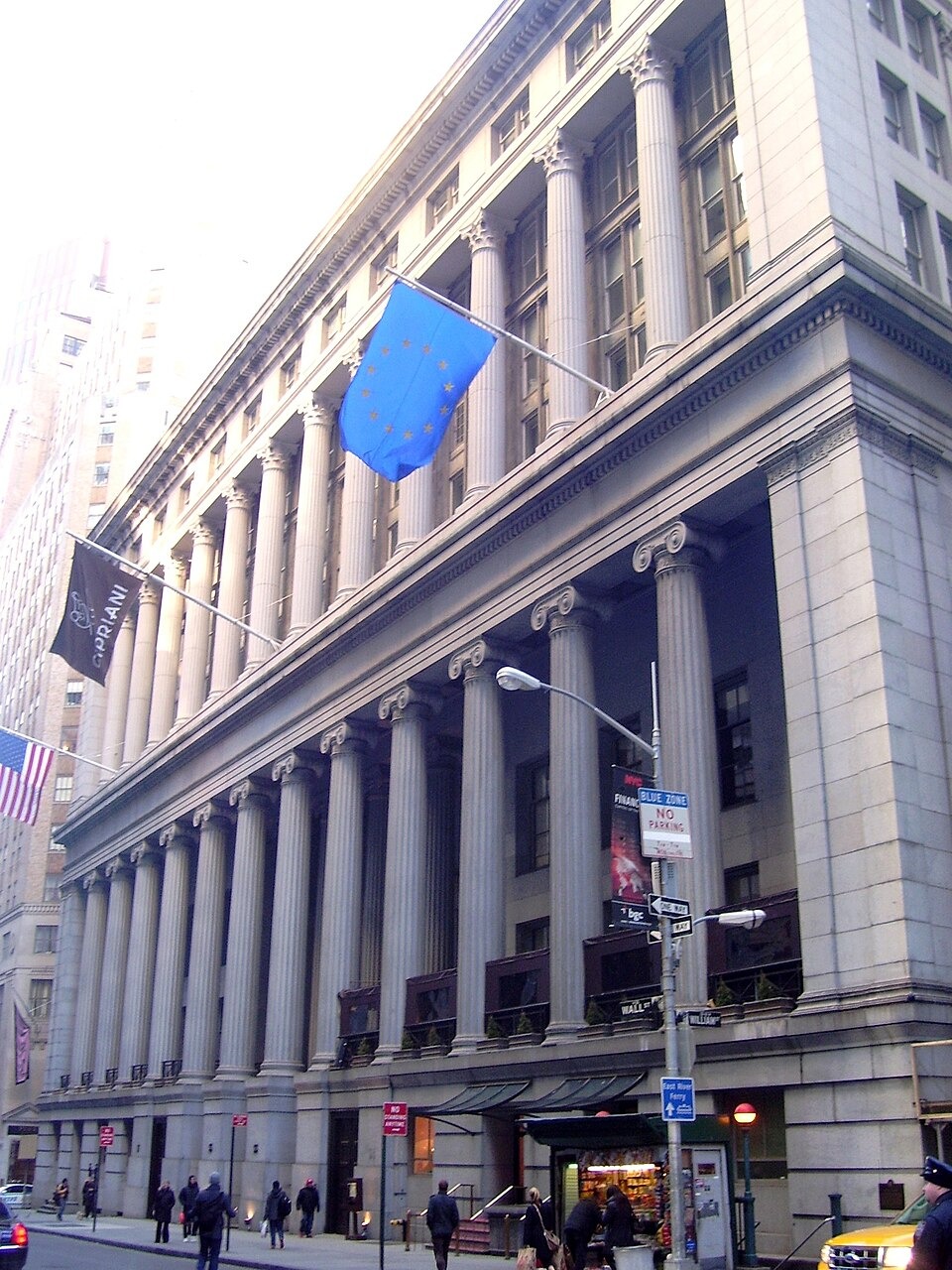
Building: Merchant’s Exchange (55 Wall Street)
Architect: Isaiah Rogers (original 1836–42), McKim, Mead & White (addition 1907)
Architecture style: Greek Revival (original), Neo-Classical (addition)
Built in: 1836–1842 (original) / 1907 (addition)
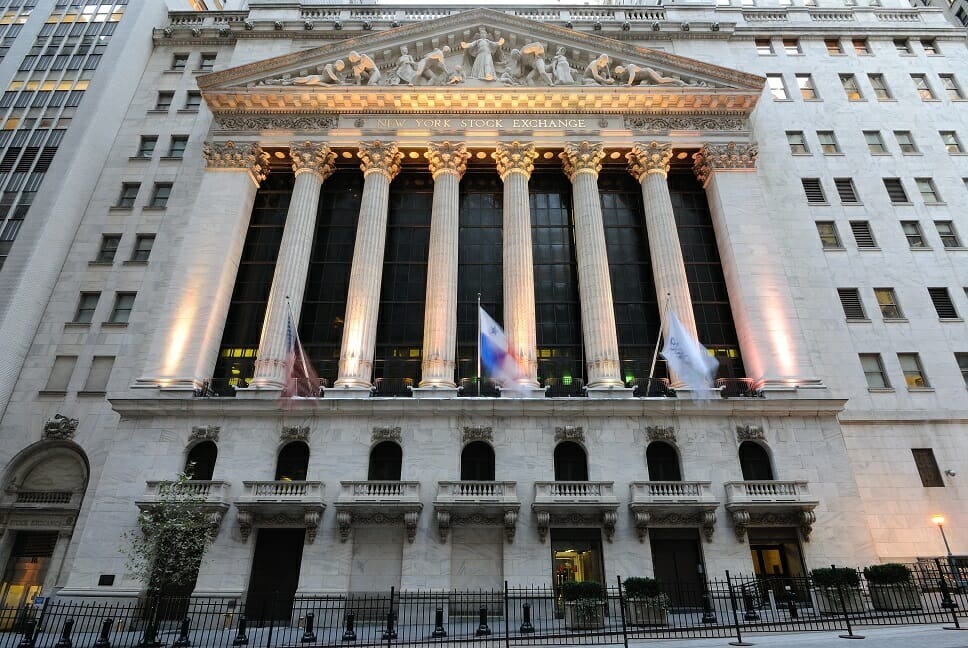
Building: New York Stock Exchange (11 Wall Street)
Architect: George B. Post (main building), Trowbridge & Livingston (addition, 1923)
Architecture style: Classical Revival / Beaux-Arts
Built in: 1901–1903 (original); addition 1923
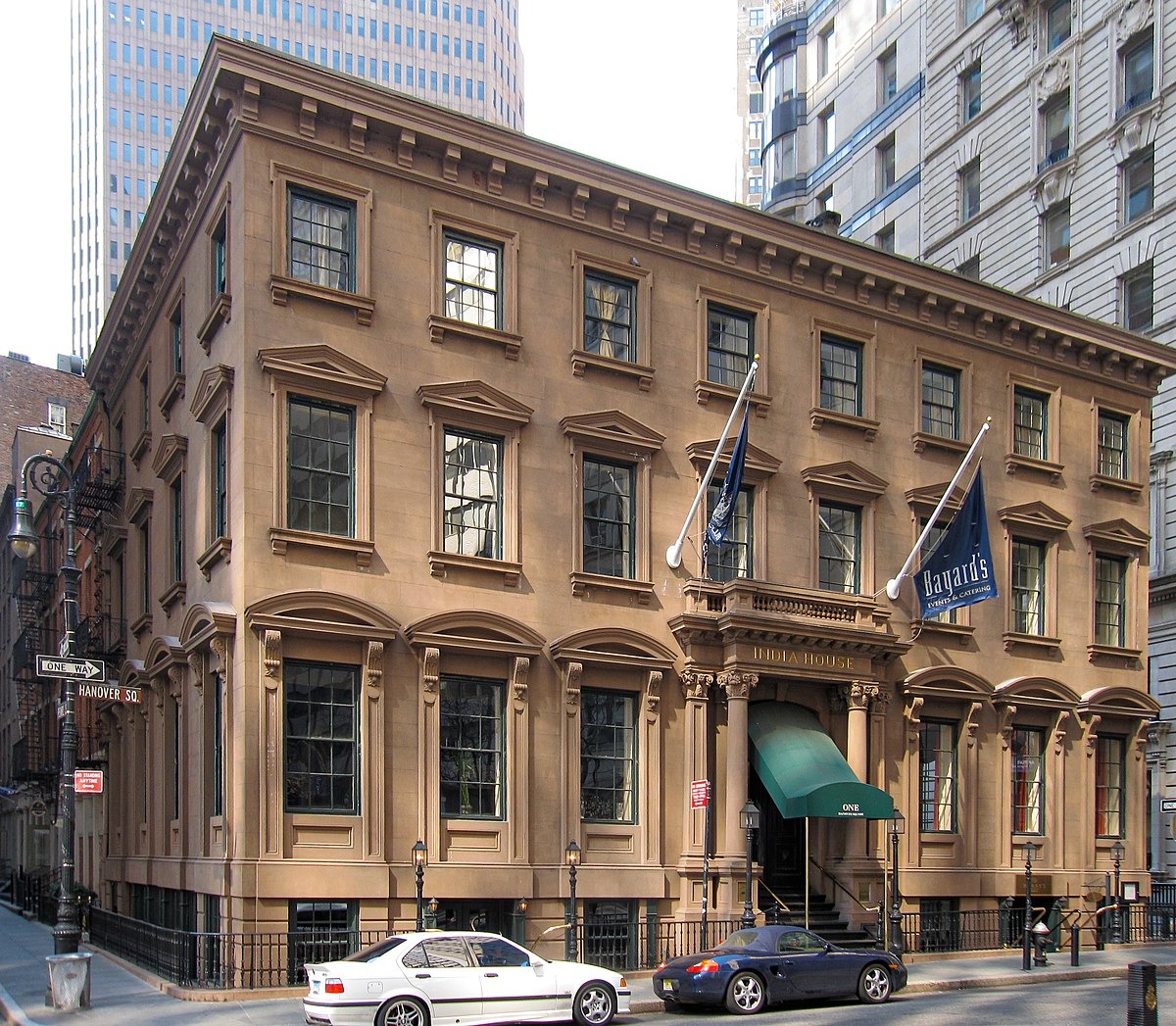
Building: India House (1 Hanover Square) (1 Hanover Sq)
Architect: N/A (original architect unknown)
Architecture style: Anglo-Italianate (Italian Renaissance Revival / Renaissance)
Built in: 1851-54
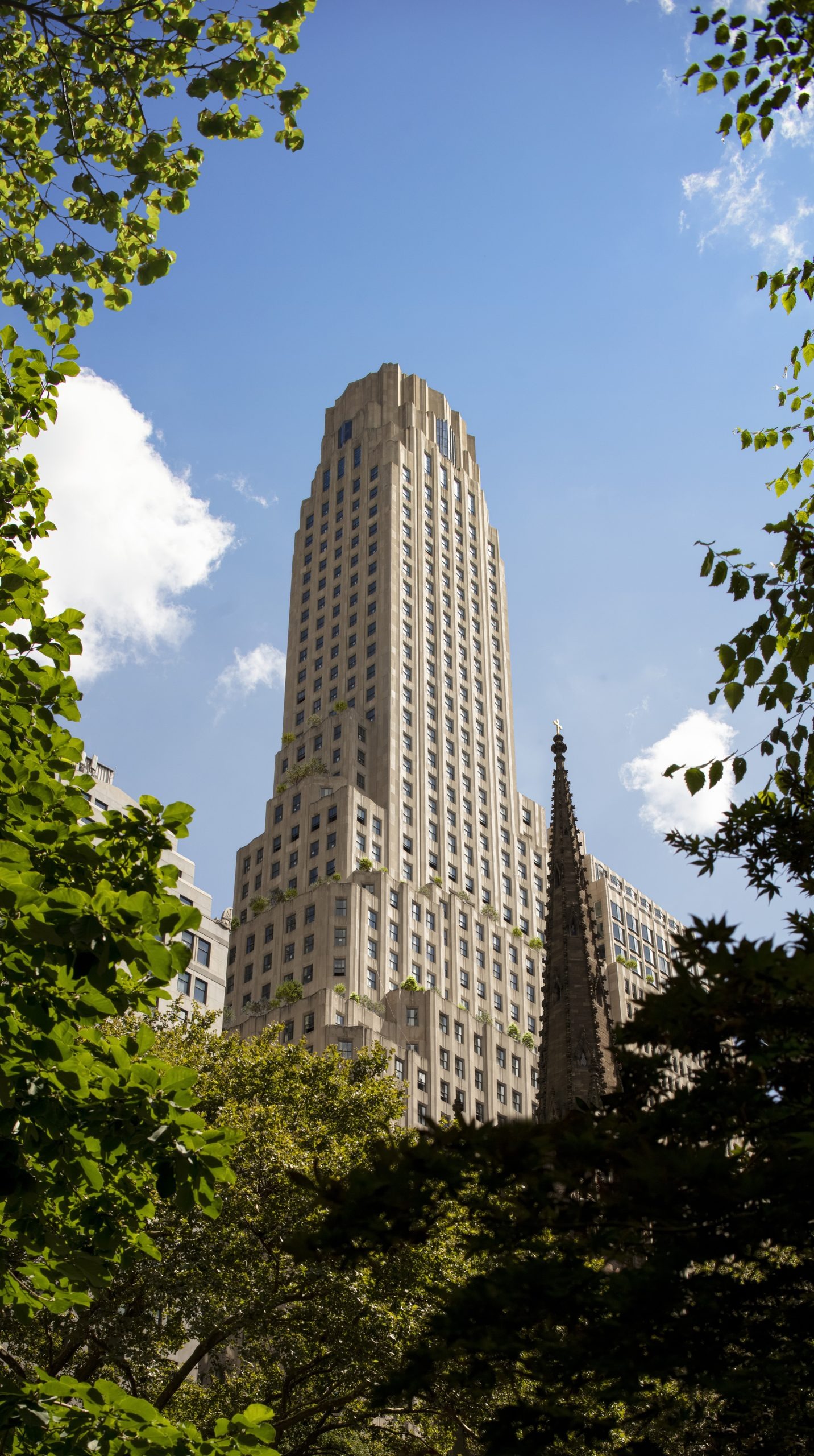
Building: Irving Trust Building (1 Wall Street)
Architect: Voorhees, Gmelin & Walker
Architecture style: Art Deco
Built in: 1929–1931
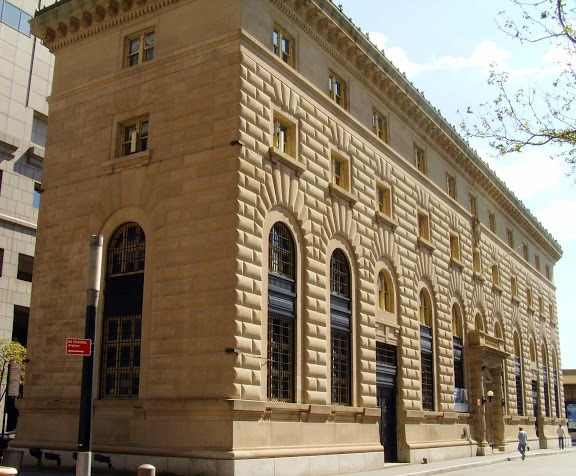
Building: First Police Precinct Station House (100 Old Slip)
Architect: Hunt & Hunt (Richard Howland Hunt & Joseph Howland Hunt)
Architecture style: Neo-Italian Renaissance (or Neo-Italian Renaissance palazzo style)
Built in: 1909-1911
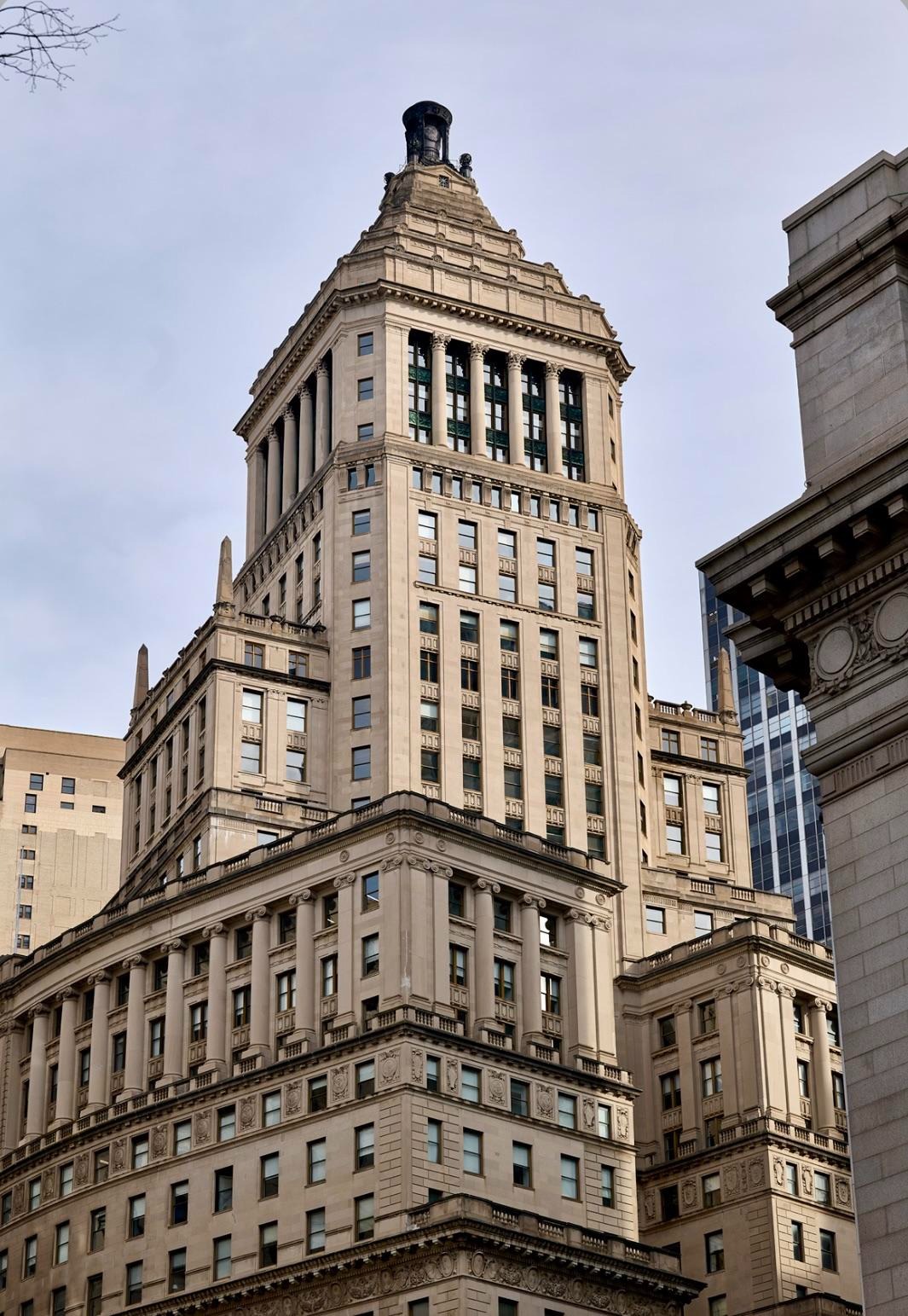
Building: Standard Oil Building, 26 Broadway
Architect: Carrère & Hastings with Shreve, Lamb & Blake (associate)
Architecture style: Renaissance Revival (Neo-Renaissance)
Built in: 1921-1928 (modern tower phase)
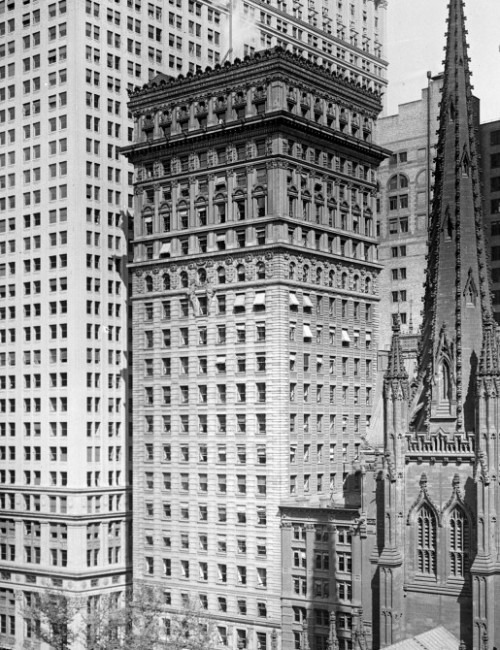
Building: American Surety Building (100 Broadway)
Architect: Bruce Price
Architecture style: Neo-Renaissance / early skyscraper style
Built in: 1894–1896
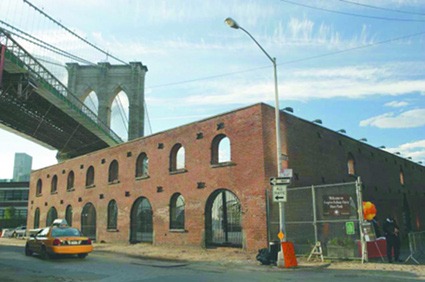
Building: Tobacco Warehouse, 84‑85 South Street
Architect: G. Curtis Gillespie (1902)
Architecture style: N/A (warehouse industrial style)
Built in: 1902
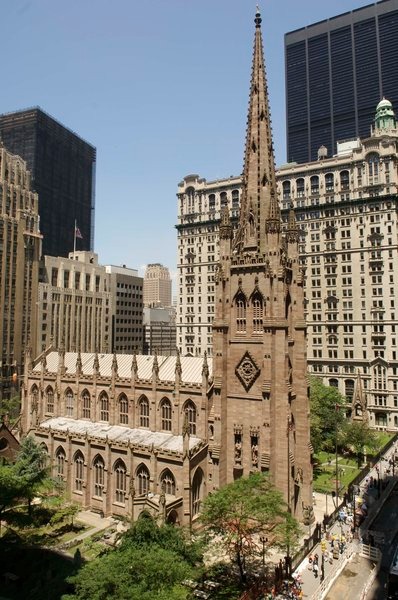
Building: Trinity Church
Architect: Richard Upjohn
Architecture style: Gothic Revival
Built in: 1839–1846
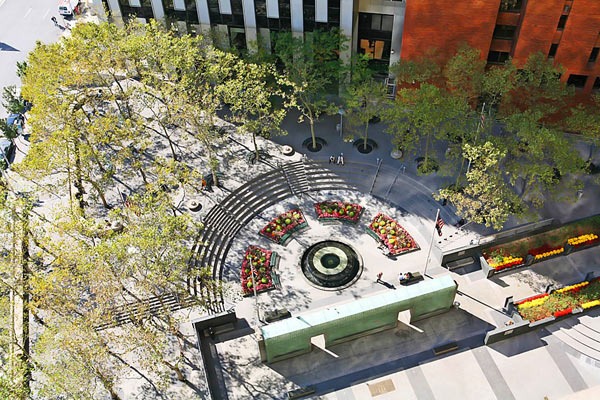
Building: NY Vietnam Veterans Memorial (Plaza at South & Water Streets)
Architect: W. M. Britt Fellows & Peter Wormser
Architecture style: Memorial / public-plaza design (with granite pylons, water feature, etc)
Built in: 1985